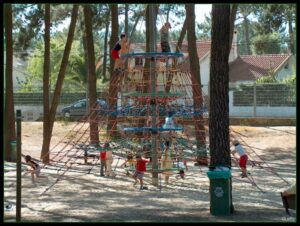
By Elaine Hall, DCI Fellow
When I applied to be a DCI fellow, part of my pitch was that I have extensive practice at navigating discussions in which there is difference and disagreement. I am raising two boys. As human beings, they often find themselves at odds with themselves, each other, me, and the world in general. Simple decisions about whether to eat at Chick-Fil-A or Cookout, whether to watch MythBusters or Great British Baking Show, whether to play Hearts or Rummikub, can and regularly do turn into pitched logical and emotional battles for the upper hand. Certainly, the skills of fostering family unity while also negotiating detailed who-chooses-the-entertainment agreements have crossover benefits for facilitating deliberations on matters of broader concern, right?
In my daily life, I often have to call a pause, remind folks to listen, restate the ground rules, and dial down the heat in order to problem-solve one situation or another. It turns out that what I’m doing constantly and informally, the DCI is defining and practicing in more formal and documented fashion. DCI has identified several key deliberative dispositions such as humility and charity that map closely to “I’m listening to your brother now, then it will be your turn,” and “ Learning to lean into these dispositions is the work of a lifetime, and it helps us thrive as individuals.
Whenever we engage conflict, or potential conflict, in the human family, there are particular skills that can help that go more smoothly. These skills are not easy. They often go against our initial inclination to storm out or declare “that’s not fair.” But they can be learned, taught, and practiced. As parents, teachers, and community leaders, we can take responsibility for building these skills in ourselves and fostering them in our people.
I have learned a lot from the work of Brenè Brown about how I can be attentive to my own experiences of vulnerability and shame, and thus show up in healthy ways when things get tough. The Gifts of Imperfection was a helpful guide to manage my own stuff as a new parent. She offered specific language and ideas for disentangling myself from judgment and perfectionism, allowing me to treat myself and others with kindness and respect. Within the DCI, we know that deliberators who can maintain kindness and respect are far more likely to be successful.
Dr. John Gottman has written on emotional health and emotional intelligence in families. His book, Raising an Emotionally Healthy Child, gives helpful guidance for teaching children. He says that the key elements are recognizing emotion, responding with connection, listening to understand and empathize, naming emotions clearly, and dealing with emotion in healthy, problem-solving ways. The same suggestions have been very helpful for my own growth. When we have the skills to recognize and move through our own emotions and discomforts, we are much better prepared to participate effectively in the hard work of deliberation.
Deliberation goes best when we practice nuanced skills for speech and deep listening. The interconnected skills that foster strong understanding and collaborative problem solving are the work of a lifetime, yet we can practice them early and often. Whenever we practice stating our own needs and desires clearly and listening to others attentively, we are taking steps towards healthier selves, relationships, communities, and maybe even democracy.

Leave a Reply